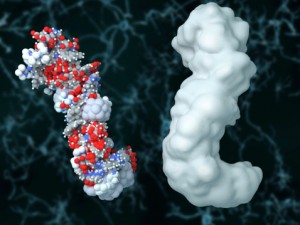

 Amyloidosis (excess amyloid protein) can increase the risk of kidney failure and heart failure. Amyloid is an abnormal protein that when it builds up in organs and tissues it can affect how they function and look which can lead to serious health consequences – primarily amyloidosis which can be life-threatening to organs. Amyloid is produced in bone marrow and can deposit itself anywhere in the body.
Amyloidosis (excess amyloid protein) can increase the risk of kidney failure and heart failure. Amyloid is an abnormal protein that when it builds up in organs and tissues it can affect how they function and look which can lead to serious health consequences – primarily amyloidosis which can be life-threatening to organs. Amyloid is produced in bone marrow and can deposit itself anywhere in the body.
Common areas of the body which can be affected by amyloidosis and amyloid buildup are the heart, liver, spleen, central nervous system, and the digestive tract.
The main cause of amyloidosis is the deposits of amyloid proteins but depending on the formation of the amyloid deposits that greatly determines how serious amyloidosis will be. There are different types of amyloidosis including:
Often amyloidosis can go symptomless for quite some time until the condition is quite severe. Furthermore, depending on the organ affected that can determine the symptoms as well. Common symptoms associated with amyloidosis are:
Due to the symptoms of amyloidosis overlapping many other conditions it can be challenging to diagnose it. A medical history ad a physical exam is the first step to amyloidosis diagnosis. Other tests which can help diagnose amyloidosis include:
Treatments aim to reduce symptoms of amyloidosis and reduce further production of amyloid proteins as there is currently no cure for the disease. Treatments for amyloidosis include:
Because amyloidosis can be life-threatening to organs it’s important you get tested early on so that treatment can begin right away before more serious complications occur.
Alzheimer’s disease stoppable much earlier by reducing beta-amyloid protein
Alzheimer’s disease can be stopped much earlier by reducing beta amyloid protein, new findings suggests. The findings come from The Nantz National Alzheimer Center at Houston Methodist Hospital as part of a landmark trial. It looks at a key protein in the brain that may be able to prevent memory loss nearly one decade sooner than symptoms usually emerge in seniors. Continue reading…
Pomegranate extract may protect against Alzheimer’s disease
Pomegranate extract has been shown to have disease-fighting polyphenols, which research has found may be able to ward off Alzheimer’s disease. Although the researchers knew about pomegranate’s powers, they were unsure as to which molecules assisted in its brain-saving capabilities. Continue reading…
Copyright © www.orthopaedics.win Bone Health All Rights Reserved